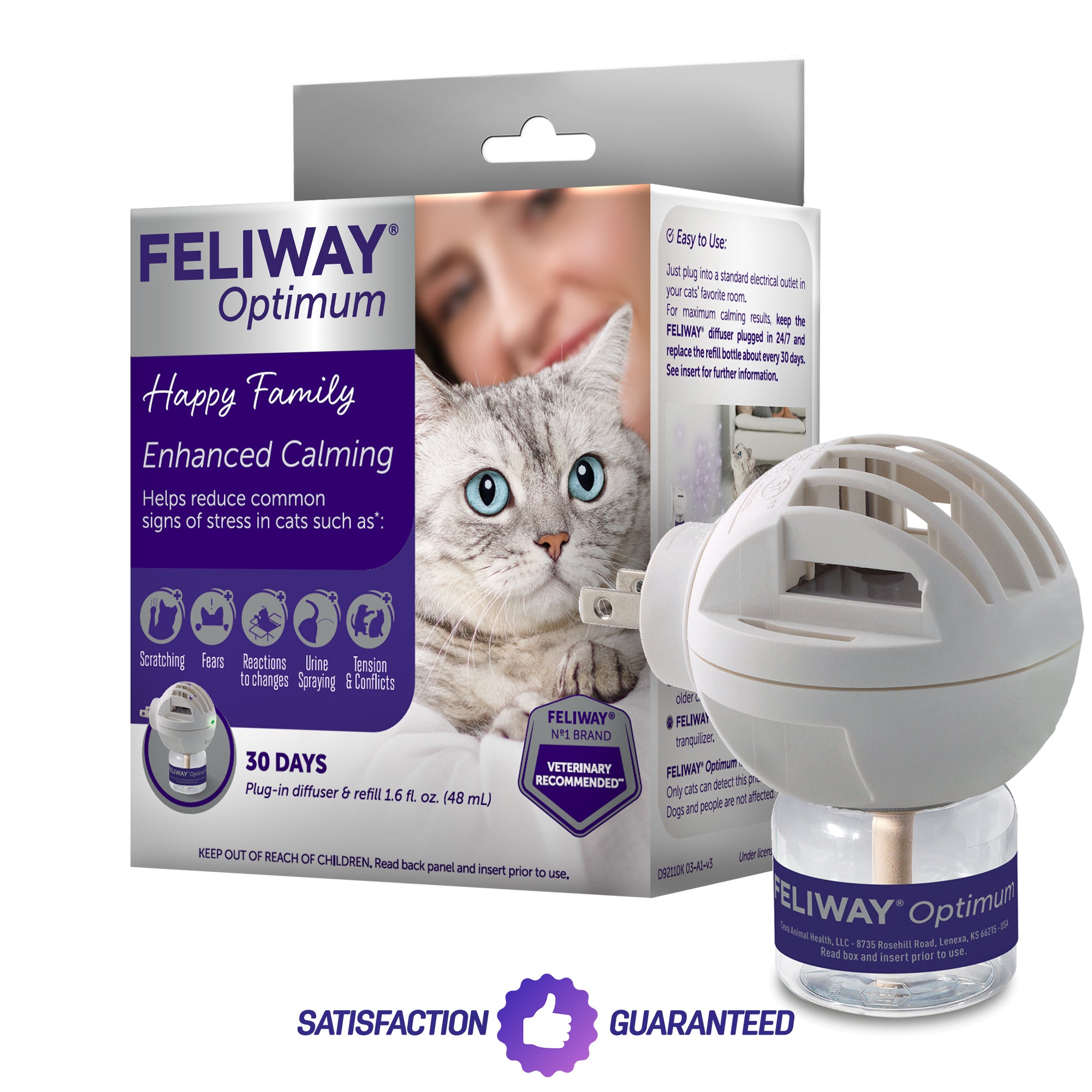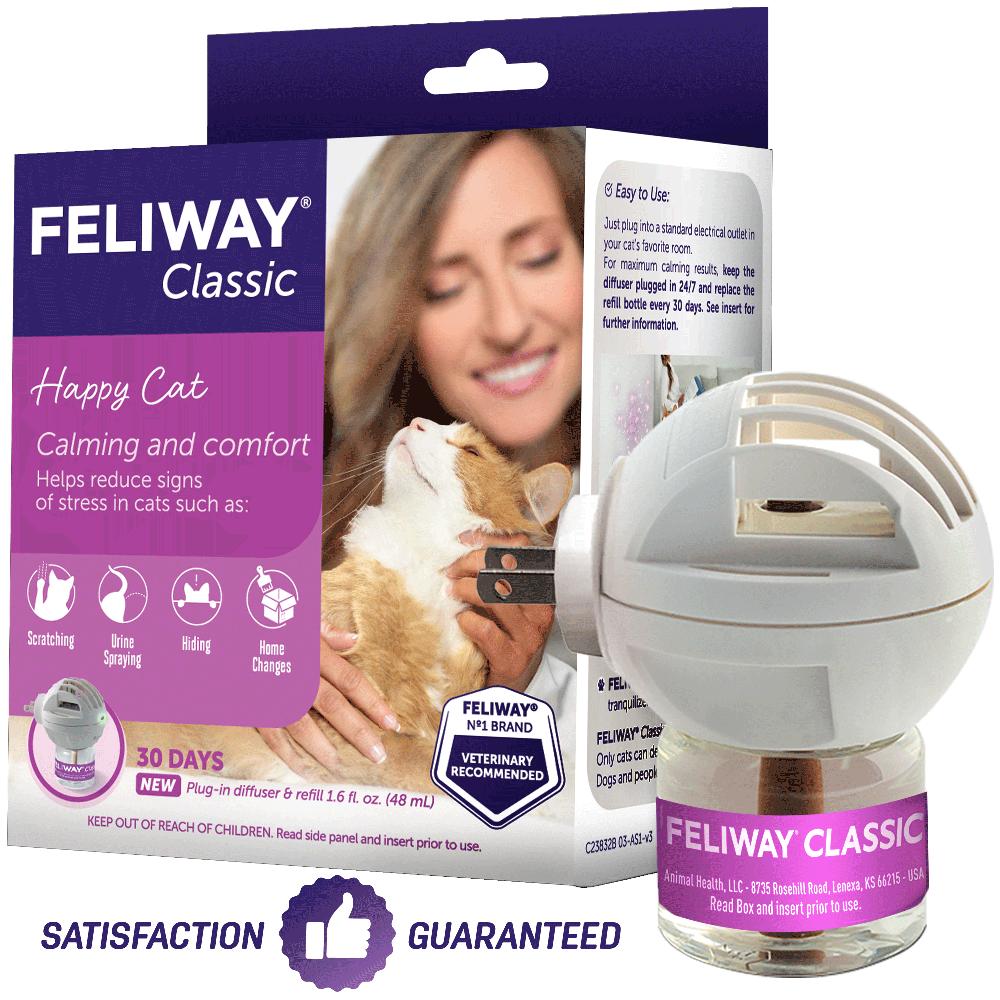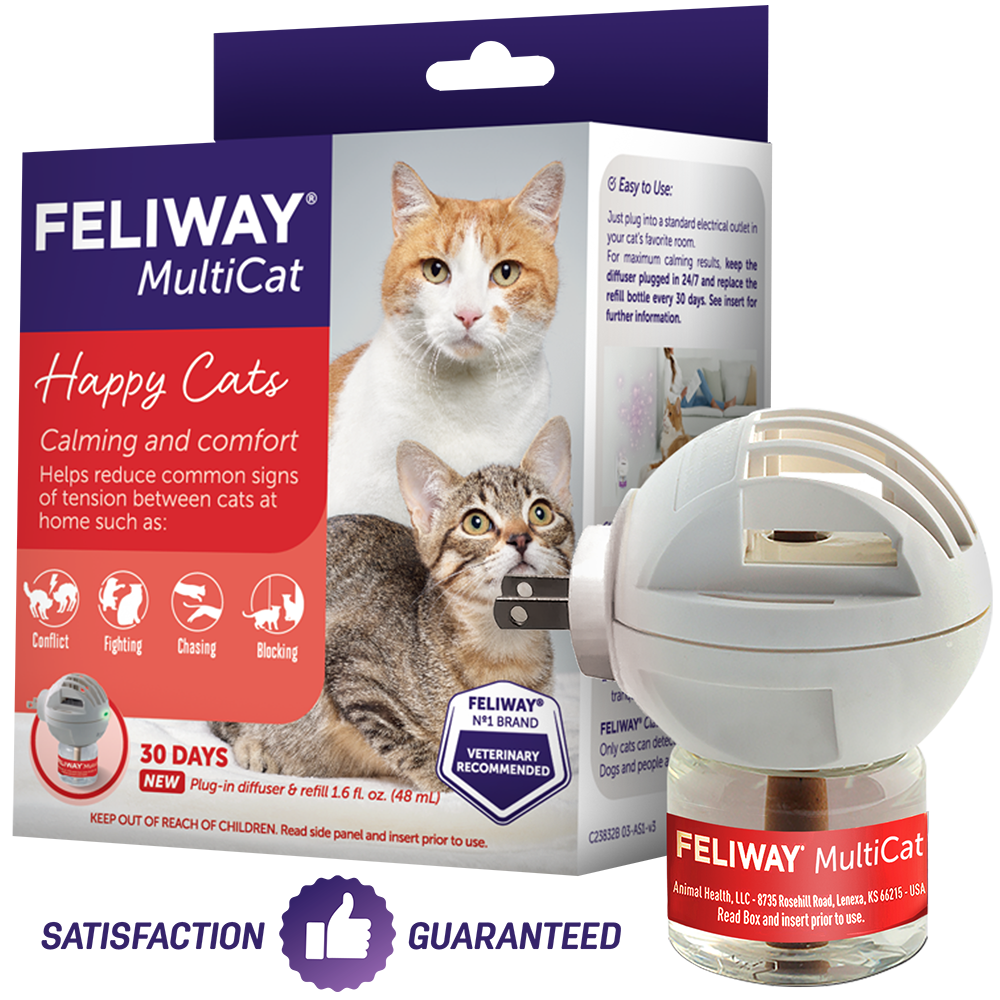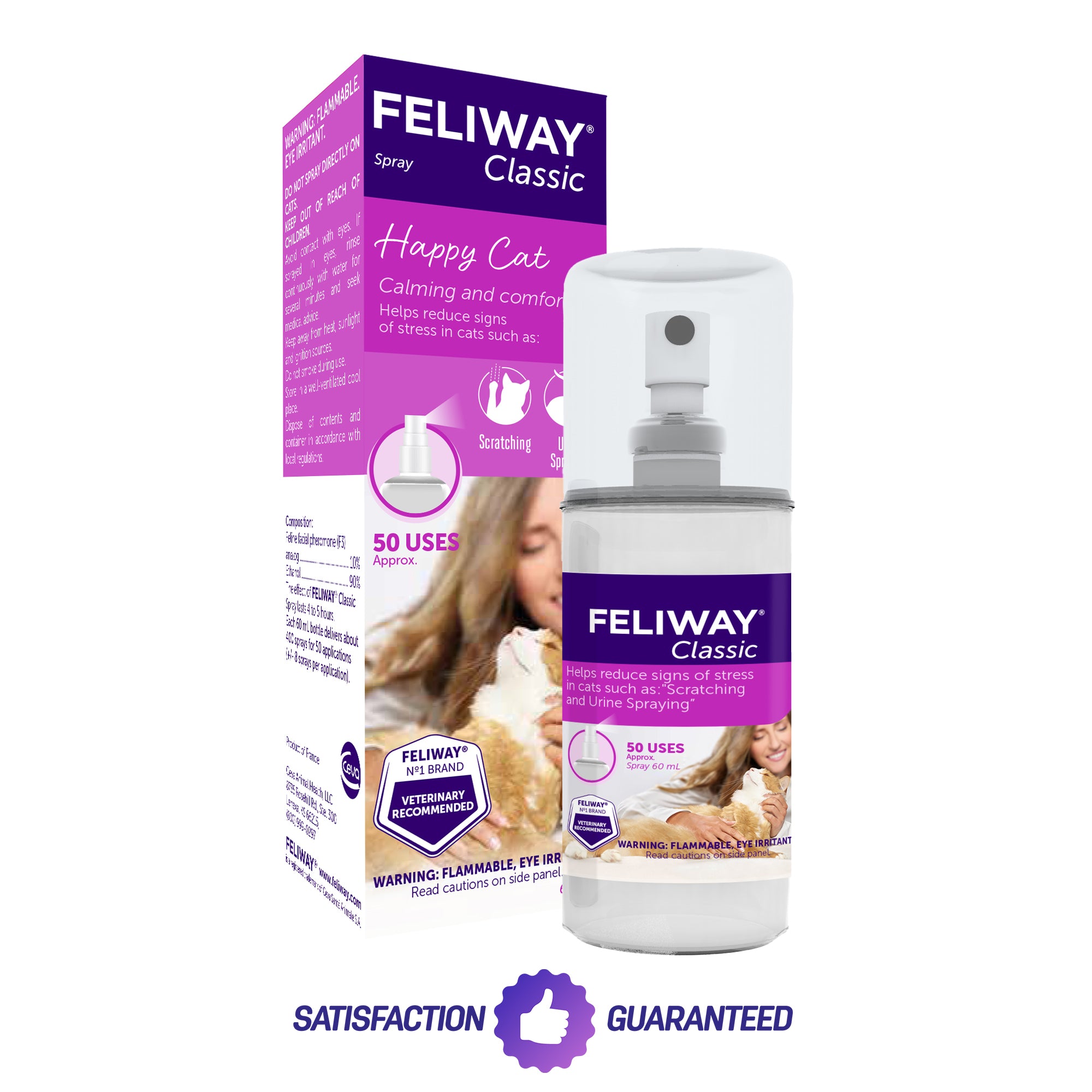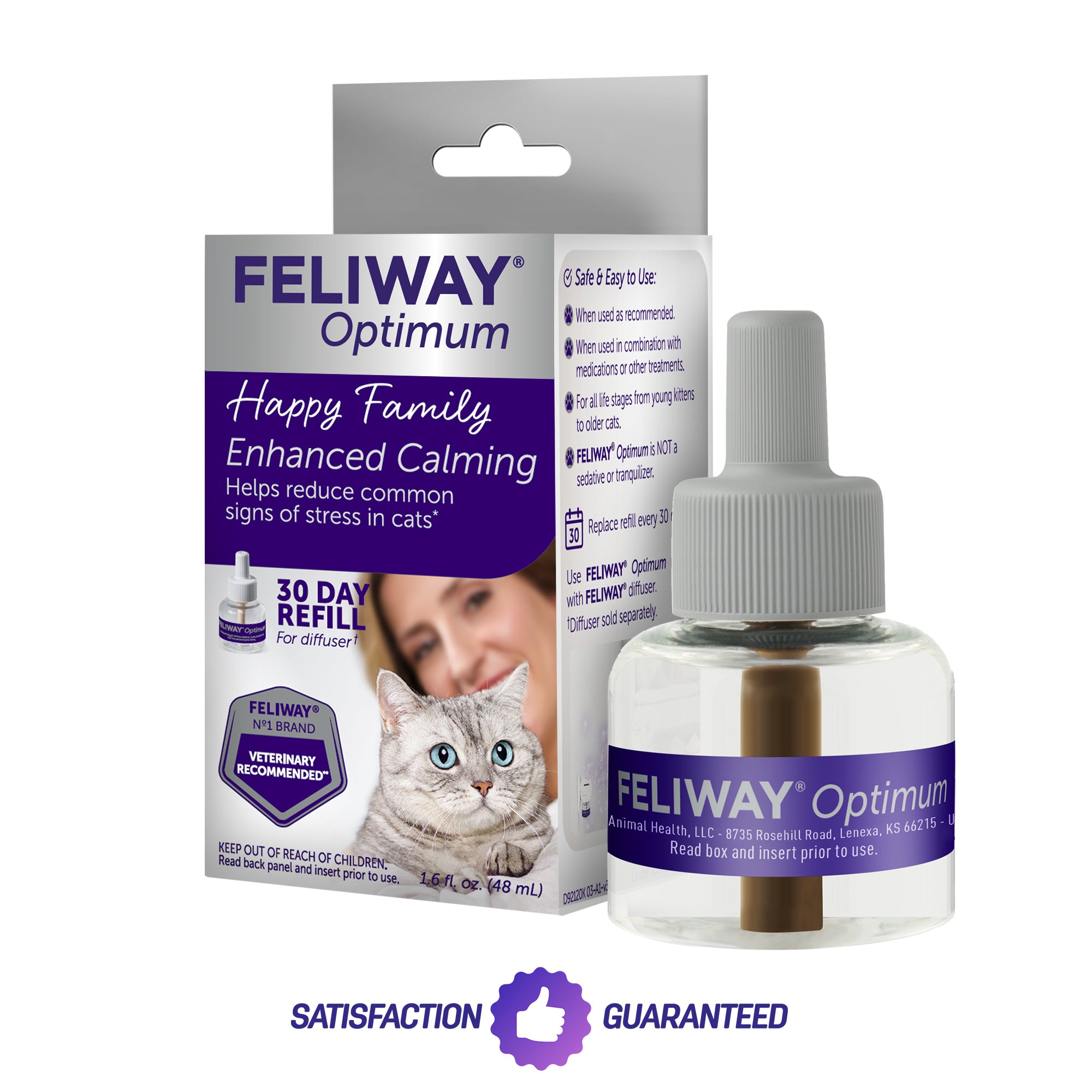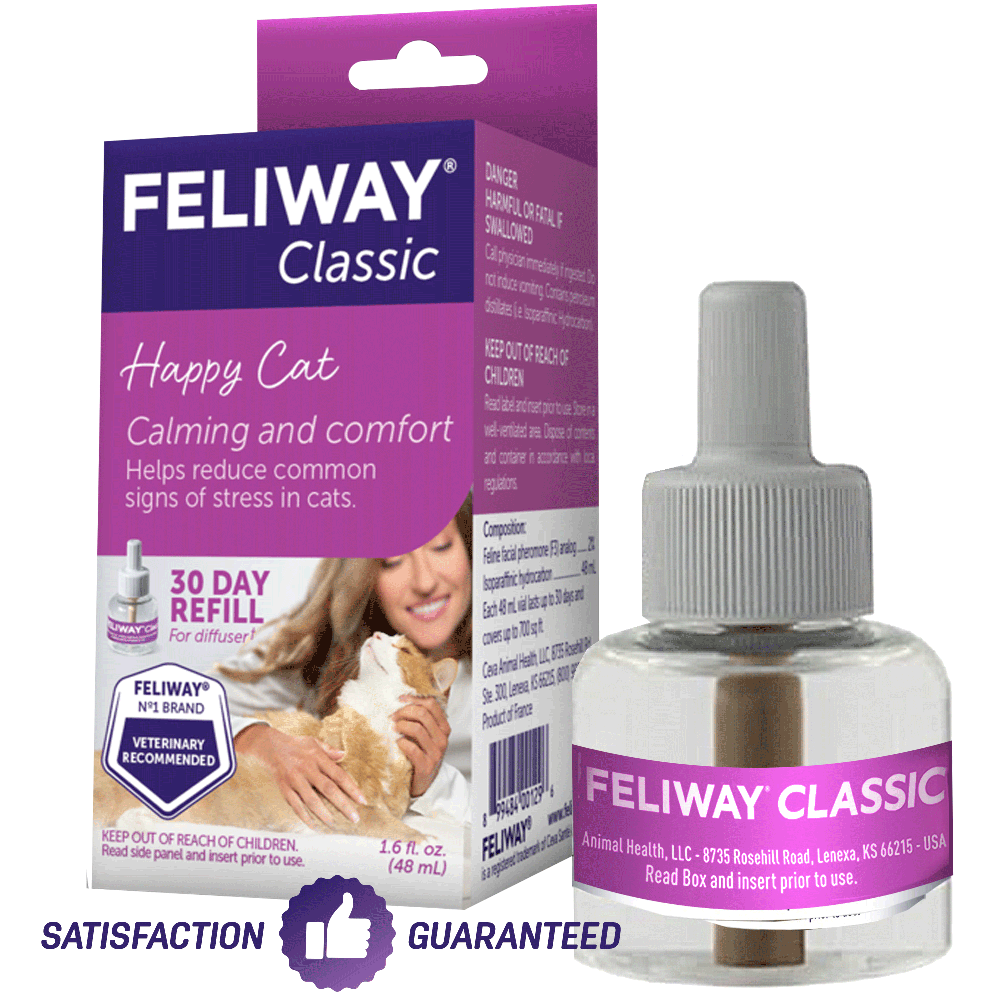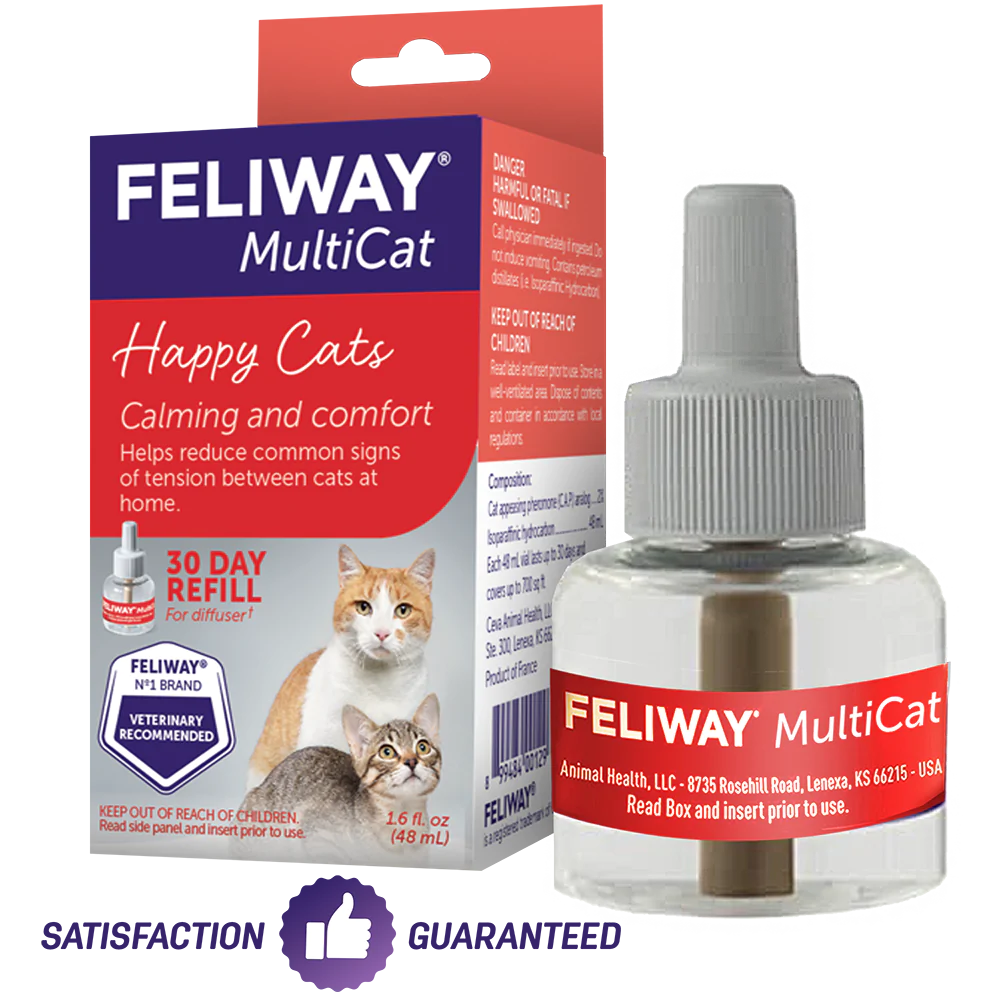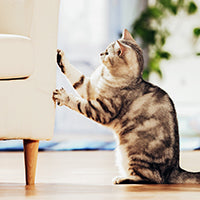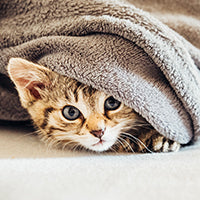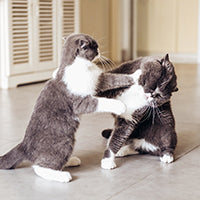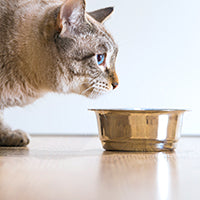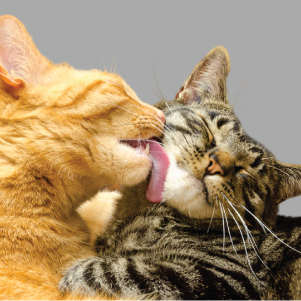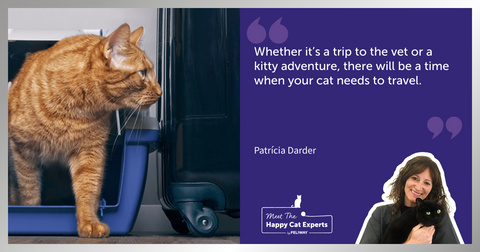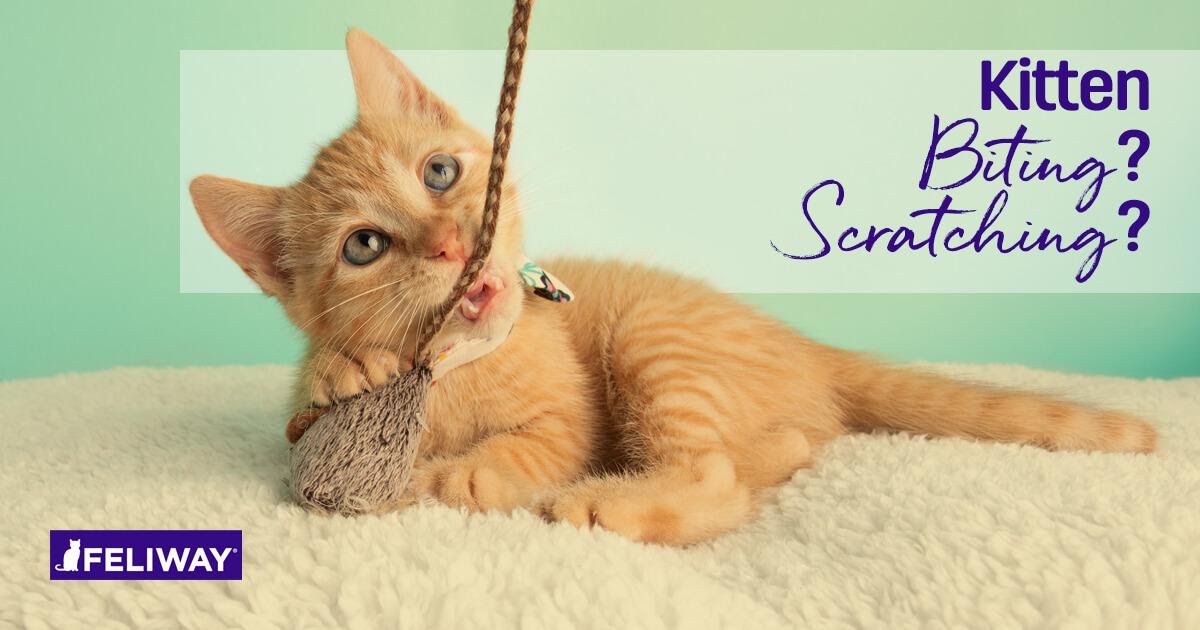
Do Kittens Grow Out of Biting And Scratching Behaviours ?
For this reason, although this play behaviour is natural between kittens, it should be discouraged before your cute kitty gets older and their bite gets stronger and more painful!
Do Kittens Grow Out of Biting and Scratching Behaviours?
Although soft kitten bites may seem cute, it’s important you discourage rough play with your kitten right from the start. If you allow them to bite and scratch when they are young, it will be hard to stop them doing it when they are older - although most kittens naturally grow out of the habit between 1 and 2 years old.
However, scratching and biting can also mean that your kitten may be in pain - something you need to watch out for. Always check with the vet if your kitty shows signs that they may be in discomfort, or reacting as a result of pain.
Tips to Limit Biting and Scratching
- Turn their attention to something else: Don’t let your cat pounce on or bite your hands and fingers during play - instead, redirect them to a toy. Roll a ball along the floor for them to chase or dangle a toy on a string where they can use their claws to catch it. Make sure everyone in your home does the same thing otherwise your kitten will get confused and the habit will be difficult to stop. It’s also best to rotate the toys you use to play with your kitten so that they don’t get bored (and then make their own game involving your hands and feet)!
- Trim their claws: Don’t confuse trimming with declawing. Declawing a cat is the surgical removal of their claws, and though declawing a cat is still legal in some US states, it is illegal in the UK and other countries.
- Make a sudden noise: If your kitten nips your fingers or hands accidentally, take your hand away gently and out of reach. Then redirect them to a toy instead. If the biting continues, repeat - and stop play if they don’t stop. They should soon get the message that they can have fun without biting.
- Avoid their sensitive spots: Most kittens don’t mind being stroked, but some can be protective of their face, paws and tummy - and this might lead to biting or scratching. When your kitten arrives in their new home, treat them gently to start with and slowly help them get used to being gently stroked all over their body. If they flinch or nip when you touch a certain spot, it might well be hurting. Avoid that spot for a while, but if they still react when you try again, it’s advisable to get them checked out by a vet.
- Learn their body language: You will soon learn to understand your kitty’s body language and recognise when they are enjoying life and when they want their own space. If they have been spooked or frightened in any way, they may react aggressively by biting. For example, when we are stroking a purring cat they are happy and content, but if their ears start moving, their tail moves form side to side, or they try to wriggle away, stop stroking them as they might be overstimulated and could start to bite or scratch you.
- Give them ‘time-out’: If your kitty misbehaves, try ignoring them for a little while which may mean they are in a different room to you or just that you’re getting on with something else. It may be that your kitty is just a little over excited and needs to recover quietly and settle down on their own. If the kitten is asleep when you come back to them, leave them alone for a while. But if they’re awake and looking confused about why they’ve been left alone, just give them some gentle loving attention, but no play - as this might encourage them to bite and scratch again.
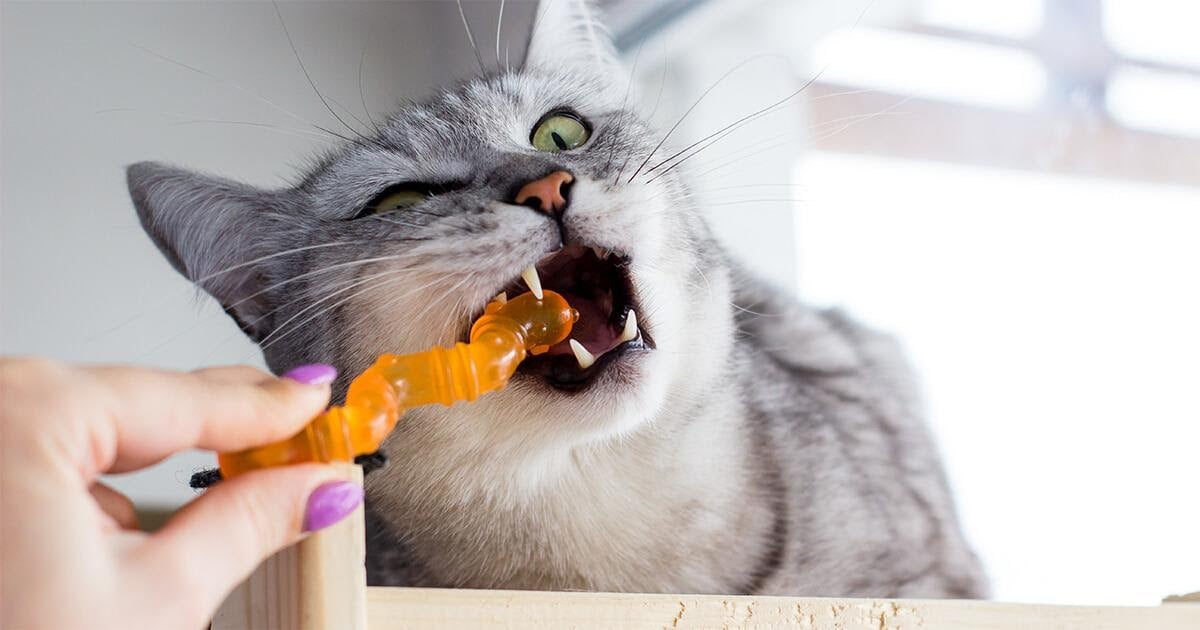
However, just trimming your cat’s claws - as you would with your own nails - does not injure your cat and should be done regularly, particularly for house cats. Make sure you use a clipper that is designed for the job (not scissors). If you’re not sure, ask your vet to show you how to do it. Providing your kitty with a scratching post will also help to keep their claws in shape, and help them feel secure, stretched!
Remember Scratching is Normal Behaviour for a Pussycat!
We have all seen cats spending a lot of time grooming themselves; licking their bodies all over, teasing out small tufts that get tangled in their fur and washing their faces with their paws (particularly cute!); scratching is an important part of their grooming process and helps keeps their nails healthy.
A scratching post will help them with their grooming and when stretching and scratching it also helps them to keep their muscles, joints and tendons in good working order.
Cats also scratch as a way of marking their territory - as well as leaving physical marks, cats also deposit messages for other cats so that they know who is in this area.
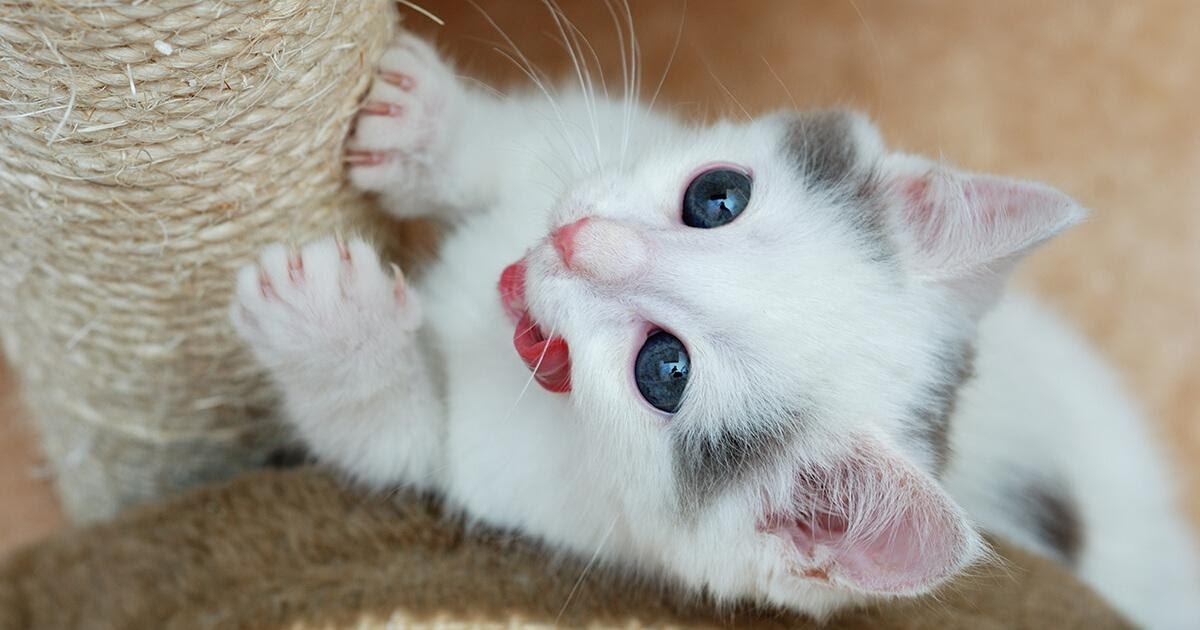
Contact Your Vet if Biting or Scratching Continues
However much you try, if your pussycat continues to bite and scratch, there might be an underlying problem or they may be in pain, so it’s advisable to take them to your vet to be checked out. You could also seek help from a behavioral specialist; they can help you get to the bottom of why your cat continues to bite and scratch and redirect your kitty towards their scratching post!
Use FELIWAY to Support a Calm, Happy Environment
Using FELIWAY Optimum will send "happy messages" to provide reassurance and prevent your cat from scrathing. FELIWAY Optimum is a new pheromone discovery and the best FELIWAY solution to reduce scrathing - 93% of cat owners reported enhanced calming.
